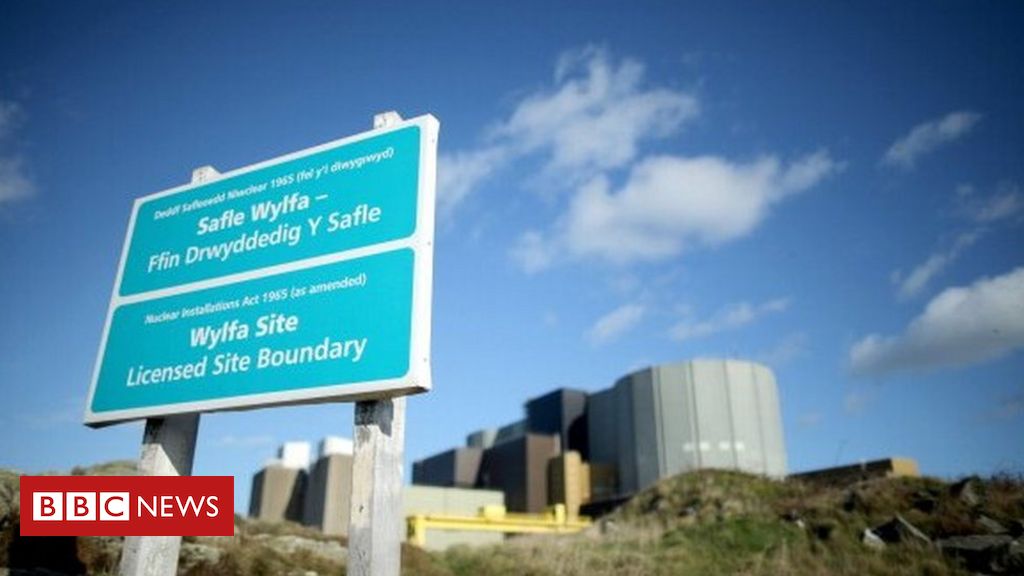Plans for a £15-£20bn nuclear power plant in Wales have been scrapped.
Work on the Wylfa Newydd project on Anglesey was suspended in January last year because of rising costs after Hitachi failed to reach a funding agreement with the UK government.
Isle of Anglesey council said the company had now confirmed in writing it is withdrawing from the project.
Council leader Llinos Medi said: “This is very disappointing, particularly at such a difficult time economically.”
Hitachi shelved the scheme, the biggest energy project ever proposed in Wales, over funding issues.
Anglesey council said it had received a letter from the Tokyo-based parent company confirming its decision.
Developer Horizon Nuclear, which is owned by Hitachi, said it would not comment.
The UK government also declined to comment but the Welsh Affairs Committee has said the Wylfa nuclear power project withdrawal is “a blow for Wales and the UK’s ambition to achieve net-zero carbon emissions by 2050.”
“This was set to be the largest energy project Wales had ever seen with a positive impact on skills and employment in the region,” said committee chairman Stephen Crabb MP.
“With the nation’s remaining nuclear plants ageing and the need for low-carbon, high yield plants needed to replace them urgent, it has never been more important than now to ensure energy security.”
Mr Crabb added that Hitachi had given “reassurances” of its commitment to the project over the summer “that gave hope to the workers who’d be needed to construct it and the high-skilled employees who would run it”.
Developers said the plant would create up to 9,000 jobs during the construction phase and have a 60-year operational life.
Campaigners against the project – a replacement for the original Wylfa plant shut in 2015 after 44 years of service – welcomed Hitachi’s move claiming a “nuclear power station would have endangered lives on Anglesey and beyond”.
The People Against Wylfa B action group said: “It would have ruined the environment over an area which is 10 times greater than the current site.”
It called on Hitachi to “ensure that no nuclear scheme will happen on the site in the future” and return the site to its “former state, for community benefit”.
“Proposals to develop green energy schemes would be an area where Hitachi’s expertise could create many jobs here,” the group added.
Anglesey council has called for a meeting with the Welsh and UK governments to discuss the future of the site.
A two-reactor plant at Wylfa was earmarked as having the potential to power up to five million homes, but the project was put on hold as the upfront costs rose.
With 9,000 workers ready to start the construction phase, the decision in January 2019 was described as “a tremendous blow” to the Welsh economy by business leaders.
The company said in June it was hoping to secure extra funding from the UK government to resume the project but has now thrown in the towel.
Analysis by BBC Wales business correspondent Brian Meechan
As one of Wales’ biggest proposed construction projects, Wylfa Newydd has faced turbulent times.
The company behind it, Hitachi, has always been concerned about the costs of building the new nuclear power plant.
The UK government went some way in offering financial support to the project but it wasn’t enough to satisfy Hitachi’s concerns over the financial risks.
The UK government also held a consultation on plans that would see energy customers pay upfront for the costs of construction.
The industry has been waiting for months for an outcome to that.
When the UK government said nuclear was part of its push for green energy, the industry thought it was a positive sign for Wylfa Newydd.
But critics question how green nuclear energy really is, not to mention how safe it is.
Wales has been called the “land of artists’ impressions” with many big schemes that are talked about and never happen.
Supporters of Wylfa Newydd will be concerned it will become another of those, while its critics would be glad to see the back of the plans.
The decision will have “a big effect on the economy”, according to Edward Jones, lecturer in economics at Bangor University.
“We are currently feeling the effect of Covid-19 and Brexit is around the corner, and we will feel the negative impact of that on the economy,” he said.
“A lot of people were investing in learning new skills with the thought of getting jobs at Wylfa.
“We know businesses are investing in new production methods to be part of the supply chain of the nuclear power plant.
“The challenge now is to find other projects that can make use of these skills.”
Mr Jones said other energy projects on the island, such as the Morlais tidal energy scheme, could make use of the investment already made.

